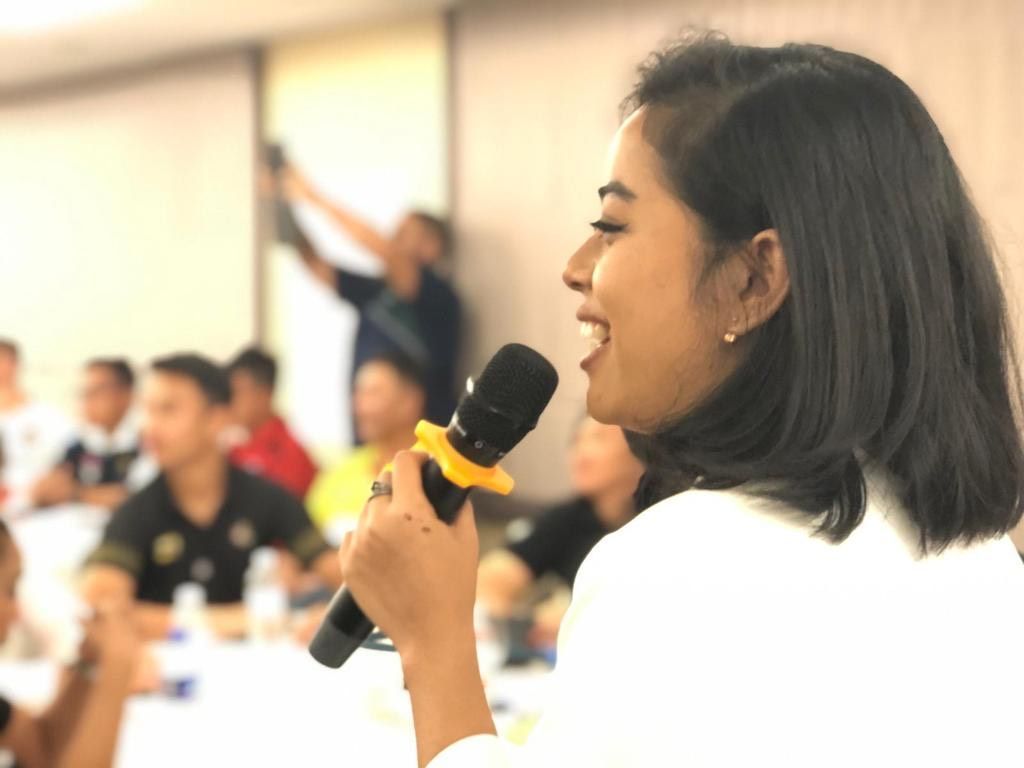If Karina Soerjanatamihardja has one grievance in life so far, it is that she was unable to fulfil her “full potential” as a rugby player.
Soerjanatamihardja can count on one hand the number of matches she has been able to play in the last few years.
That is primarily because, away from the pitch, she has been working tirelessly to ensure that pathways exist for women and young girls in Indonesia who want to play the game.
Soerjanatamihardja is Head of Women’s Rugby at the Persatuan Rugby Union Indonesia (PRUI), First Deputy Chair of Asia Rugby’s Women’s Advisory Committee, and earlier this year was awarded a World Rugby Women’s Executive Leadership Scholarship.
World Rugby announces Women’s Executive Leadership Scholarship recipients in Asia
— Asia Rugby (@asiarugby) May 8, 2020
Four candidates from @HongKongRugby , @Laorugby , @SriLankaRugby_ and @IndonesianRugby have been awarded scholarshipshttps://t.co/x1VAM8XouH pic.twitter.com/pAWfrvw2hJ
Despite still being only 30, Soerjanatamihardja — who is also a World Rugby Educator — has spent much of the last decade creating the opportunities that were not available to her.
“The reason why I'm so passionate about this is perhaps [because] I didn't get to fulfil my full potential as a player,” she told World Rugby. “I want to make sure that a player in Indonesia gets to experience that.”
‘No regrets’
Soerjanatamihardja is the daughter of an Indonesian diplomat, and as such her childhood was spent travelling the globe, from Australia to Germany, Austria, Malaysia and Hong Kong.
Rugby was an intermittent presence in her formative years, and she played touch while living in both Vienna and Malaysia.
However, Soerjanatamihardja’s parents did not approve of contact sport, and she was encouraged to try other pursuits, such as badminton, dancing and swimming.
It was not until Soerjanatamihardja was 18, and living in Hong Kong, that she signed up to a six-week contact rugby course as a way of making friends.
Soerjanatamihardja was forced to let her parents in on her secret when an envelope bearing the stamp of the Hong Kong Rugby Union arrived at the family home.
“I have no single regrets,” she said. “Because I am still in very close contact with all of my former club-mates in Hong Kong.”
Having taken the plunge into the 15-a-side game, Soerjanatamihardja became a promising flanker during the two years she spent playing in Hong Kong.
In June, 2010, she returned to Indonesia to help organise the Asian 5 Nations Division III tournament, and make contacts within the local rugby community.
Soerjanatamihardja was keen to make connections as she was considering moving home permanently and was keen to build structures for the women’s game.
“In my second season [in Hong Kong], I was just getting specialised,” she said.

“But, moving back to Indonesia, I had no place that I could play at that time. Because in 2011, there was no senior team that had a female team.
“My motivation behind getting into rugby governance or helping out [and] networking with the organisation in Indonesia is, I want girls to be able to play to their full potential, as perhaps I did in the beginning.”
The only woman in the room
Soerjanatamihardja admits that getting into sports administration as a woman, and at such a young age, did come with its challenges.
“It’s being the only woman in a room full of men, at every single meeting,” she explained.
“For me personally, I still feel like a deer in the headlights. It's still something a little bit hard to believe because my friends are still playing, and I'm already here because I had to be.
“So, that’s the biggest difficulty, that was the biggest thing for me. My biggest adjustment was to gain the trust that I could perform and do the things that I have to do to be consistent with it.
“Because once people trust you, they will trust the prepositions and your thoughts and take your counsel seriously.”
Soerjanatamihardja added: “Slowly, slowly things are changing because I hope that with me coming in, it opens their eyes to [the fact] there are women who can be committed within this and women who are technically also experienced and understand this, who can contribute.
“So, I hope it will open doors to more girls and women to be active at my level as well.”
Being on the Women’s Executive Leadership Scholarship has reunited Soerjanatamihardja with a couple of familiar faces from her playing days in Hong Kong.
“Doris [Chow] used to ref my games back then,” she explained. 2018 recipient Samantha Feausi, meanwhile, was an opponent on the pitch and also coached Soerjanatamihardja’s sister.
“I see [Feausi] as also one of my seniors and somebody I learnt from,” she added.
As part of the scholarship, Soerjanatamihardja is in the process of completing a master’s degree in cross-cultural communication. However, her hopes of visiting developing rugby nations in Europe have been impacted by the ongoing COVID-19 pandemic.
“I wanted to prove to the girls here that with dedication and hard work, it pays off. You will find something for you,” she said.
“I want to mentor the next generation of female rugby leaders here in Indonesia, because I think it's necessary. I want to show them that there is an opportunity and your voice needs to be heard and your balance is necessary in our organisation.”
Soerjanatamihardja remains confident that women’s 15s can gain a foothold in Indonesia within 10 years. If it does then don’t be surprised to find her lacing up a pair of boots and lining up in the back-row.
READ MORE: Landmark partnership adds to Rugby India’s success story >>





